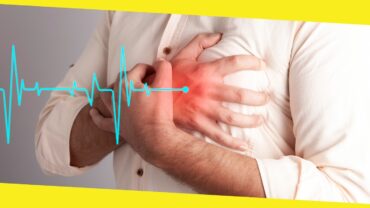Signs There is More Than Chest Pains

Chest pain is a common symptom of many different medical conditions. While chest pain is mostly not a sign of a severe problem, some medical conditions can cause severe chest pain. If you are experiencing chest pain, booking an appointment with Bhupinder Singh MD is essential to determine the cause.
Contents
ToggleWhat is chest pain?
Chest pain is a term used to describe discomfort, tightness, or pain in the chest. Chest pain can occur with many medical conditions, including heart attack, angina, and pulmonary embolism.
Some of the most severe causes of chest pain include:
Heart attack
A heart attack is a medical emergency that occurs when the blood flow to the heart is blocked. Symptoms of a heart attack can include chest pain, shortness of breath, nausea, and vomiting.
Pulmonary embolism
A pulmonary embolism is a blockage in the pulmonary artery, which can occur when a blood clot breaks free from another part of the body and travels to the lungs. Symptoms of a pulmonary embolism can include chest pain, shortness of breath, rapid breathing, and coughing up blood.
Aortic dissection
An aortic dissection is a tear in the aorta wall, the large blood vessel that carries blood from the heart to the rest of the body. Symptoms of aortic dissection can include chest pain, shortness of breath, and a rapid pulse.
Indicative signs that your chest pains are a severe problem
Some of the indicative symptoms include;
a) Severe and sudden chest pain which may radiate to the jaw, neck, or arms
It is essential to seek medical attention immediately if you are experiencing severe and sudden chest pain. This type of chest pain may signify a heart attack, pulmonary embolism, or aortic dissection.
b) Chest pain that occurs with activity or is worse when you breathe in
Chest pain that occurs with activity or worsens when breathing can signify angina. Angina is a type of chest pain caused by a lack of blood flow to the heart.
c) Chest pain that lasts for more than a few minutes
If you are experiencing chest pain that lasts for more than a few minutes, it may be a sign of a heart attack, pulmonary embolism, or aortic dissection.
d) Chest pain that is accompanied by shortness of breath, nausea, or vomiting
Chest pain accompanied by shortness of breath, nausea, or vomiting can signify pulmonary embolism or aortic dissection.
e) Chest pain that is accompanied by a rapid pulse
Chest pain accompanied by a rapid pulse can signify pulmonary embolism or aortic dissection.
f) Chest pain that occurs when you are at rest
If you are experiencing chest pain when you are at rest, it may signify heart disease.
How is chest pain diagnosed?
Many different medical conditions can cause chest pain, so it is vital to see a doctor to determine the cause. The doctor will perform a physical exam and may order some tests, such as an electrocardiogram (ECG) or a chest X-ray, to help determine the cause of the chest pain.
If you are experiencing chest pain, it is crucial to see a heart and vascular care doctor to determine the cause. They will help you choose the cause of your chest pain and provide treatment if necessary.
Recommended For You
6 Steps You Can Take Immediately to Prevent or Reverse Heart Disease
Most Inside
Most Inside offers high-quality recommendations and valuable updates to enhance all aspects of your life, providing premium guidance and enriching experiences.




